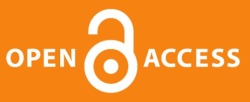Islamic finance: Meeting Global Aspirations and Growth Potential - UK Model
Résumé
The purpose of this research is to describe the Islamic financial market and products, with particular emphasis on the growth of Islamic finance in the UK market. The analytical descriptive approach has been used because it will help to collect quantitative and qualitative data to answer the research question or test the research hypothesis. The results indicate that Islamic and traditional banks with the Islamic window promote investment in the UK through the financing of real estate, insurance services and financing of transport projects without interest charges on loans. (FSA) Encourage the Government to develop Islamic banking, develop market and demand, and develop Islamic finance products and services that contribute to the growth of Islamic banking services in the United Kingdom.
Références
2. AIMS. Difference Between Islamic Banking and Conventional Banking) 2017( Available on:
4. BAKIR, M. Islamic Finance What Is the Difference Between Murabaha and Conventional Loan? 2014.
5. Hamadush Abdel Hamid and Madi Mohamed Ibrahim (2021): Islamic financing for local development through Islamic windows, Gulf Bank, Algeria, Ain Defla Agency as a model, Journal of the New Economy, Vol. 12, No. 3, Algeria.
6. Hussain Abdul-Muttalib Al-Asraj (2011): Activating the role of Islamic finance in the development of small and medium enterprises.
7. Jaghout Abdel-Razzaq and Smash Kamal (2019): The Role of Islamic Finance Formulas in Financing the Development of Small and Medium Enterprises in Algeria, Journal of Research and Business Studies, Volume 3, Issue 2, Algeria.
8. JAMALDEEN, F. How Sukuk (Islamic Bonds) Differ from Conventional Bonds. 2012.
9. Kammer, M. A., Norat, M. M., Pinon, M. M., Prasad, A., Towe, M. C. M., & Zeidane, M. Z. (2015). Islamic finance: Opportunities, challenges, and policy options (No. 15). International Monetary Fund.
10. Kawash Zahia, Bin Haj Djilali Magrawa Fathia (2021): The reality and challenges of Islamic finance in Algeria - Al Baraka Bank of Algeria as a model -, Journal of Modern Economy and Sustainable Development, Volume 4, Number 2, Algeria.
11. Khaira Massoudi and Mohamed Farhi (2017): Islamic Finance Meeting Global Aspirations and Growth Potential: The United States of America as a Model, Journal of Economic Studies Issue, Volume 8, Issue 3, University of Laghouat, Algeria.
12. Khaled Muhammad Mahmoud Al-Ashkar (2018): Islamic finance as an alternative to financing industrial projects in the Gaza Strip, Master's thesis, Faculty of Commerce, Islamic University, Gaza.
13. Kinyanjui, S. N. (2013). Challenges facing the development of Islamic banking. lessons from the Kenyan experience. European Journal of Business and Management, 5(22), 94-102.
14. Mahmoud Shwayat and Osama Al-Ani (2017): Cash flow in Islamic banks among the legal and legal determinants, Al-Manara Magazine, Volume 23, Issue 2.
15. Maqawib Munsif (2015): The future of Islamic finance in light of global financial crises, the Malaysian experience in Islamic finance as a model, Journal of Social and Human Sciences, No. 10, Algeria.
16. Mays Magdy Al-Ahmad (2020): Islamic Microfinance and its Applications in Islamic Banks, Algerian Journal of Research and Studies, Volume 3, Issue 4, Algeria.
17. Muhammad Mustafa Ghanem (2010): The reality of Islamic microfinance and the prospects for its development in Palestine, the case of Islamic relief - Gaza Strip, Master's thesis, Faculty of Commerce, Islamic University, Gaza.
18. Rahma Belhadef (2020): Reading in the Reality and Prospects of Islamic Finance, Journal of Business Administration and Economic Studies, Volume 6, Number 1, Algeria.
19. Shakib Baher Al-Owaiwi (2018): Islamic finance as an alternative to financing small projects from the point of view of the beneficiaries in the Gaza Strip, Master's thesis, Faculty of Commerce, Islamic University - Gaza, Palestine.








